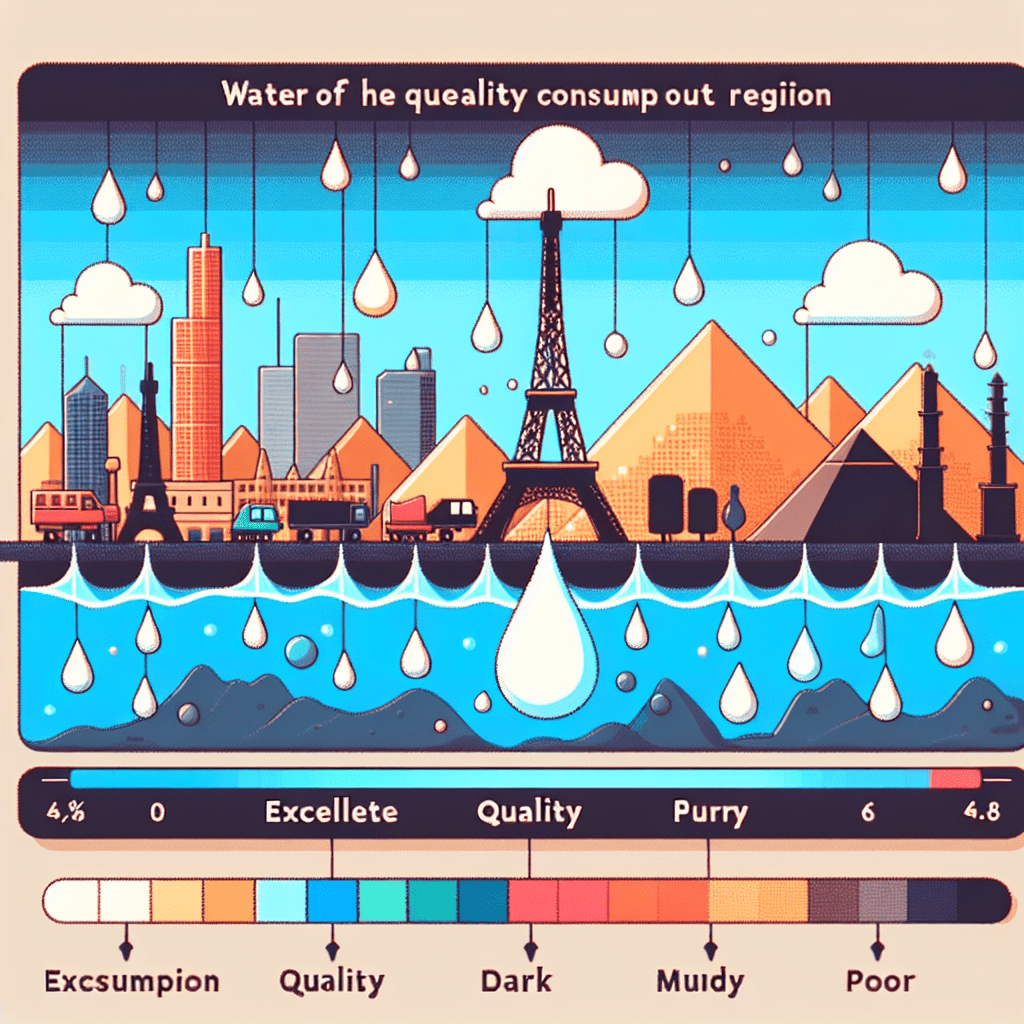water consumption / water quality in different countries

Water Consumption and Quality: A Global Perspective
Water is the essence of life. It is a fundamental resource for human health, economic growth, and agricultural productivity. However, the availability and quality of water vary greatly across different countries. This article explores the disparities in water consumption and quality worldwide and discusses the implications for public health and sustainable development.
Water Consumption Patterns
Water consumption refers to the amount of water used by individuals, communities, or industries. It encompasses direct uses, such as drinking and bathing, and indirect uses, such as agriculture and manufacturing. According to the World Health Organization (WHO), an individual needs between 50 and 100 liters of water per day to meet their basic needs.
However, water consumption varies significantly across countries due to differences in climate, lifestyle, and economic activities. For instance, the United States has one of the highest water consumption rates, with an average American using about 575 liters per day. In contrast, countries in Sub-Saharan Africa have some of the lowest rates, with an average person using less than 20 liters per day.
"Water is the driving force of all nature." - Leonardo da Vinci
Water Quality Issues
Water quality is equally important as water quantity. It is determined by the presence of physical, chemical, and biological contaminants in water. Safe drinking water should be colorless, odorless, and free from harmful substances.
However, many countries, especially in the developing world, struggle with poor water quality. According to the WHO, about 2 billion people worldwide use a drinking water source contaminated with feces. This poses serious health risks, including diarrhoea, cholera, dysentery, typhoid, and polio.
Even in developed countries, water quality can be a concern. For example, the Flint water crisis in the United States highlighted the dangers of lead contamination in drinking water. Similarly, in many parts of Europe, nitrates from agricultural runoff are a significant water quality issue.
"We never know the worth of water till the well is dry." - Thomas Fuller
The Importance of Water for Health
Water plays a crucial role in maintaining human health. It helps regulate body temperature, lubricate joints, flush out waste products, and facilitate various biochemical reactions in the body.
Dehydration, or insufficient water in the body, can lead to a range of health problems, from mild headaches and fatigue to serious conditions like kidney stones and heat stroke. Chronic dehydration can also increase the risk of chronic diseases, such as urinary tract infections, hypertension, and kidney disease.
According to a scientific study, "Even mild dehydration can influence mood, energy levels and the ability to think clearly."
Conclusion
In conclusion, water consumption and quality are critical issues that affect people's health and well-being worldwide. While some countries enjoy abundant and clean water, others face severe water scarcity and pollution. Therefore, it is crucial for governments, businesses, and individuals to work together to ensure that everyone has access to safe and sufficient water.
"Water, the Hub of Life. Water is its mater and matrix, mother and medium." - Albert Szent-Gyorgyi
Summary
Water is a fundamental resource for human health and development. However, water consumption and quality vary greatly across different countries. High-income countries tend to have high water consumption rates and relatively good water quality, while low-income countries often struggle with water scarcity and pollution. Regardless of the situation, it is essential for everyone to stay hydrated for optimal health. As Albert Szent-Gyorgyi once said, "Water, the Hub of Life. Water is its mater and matrix, mother and medium."



